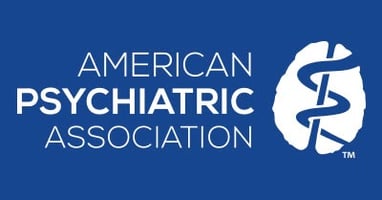APA is hailing a bipartisan $8 billion emergency spending bill approved by the Senate today to...
Control, Coherence, Connectedness May Promote Resilience
 |
“Those people who found meaning in the [9/11] attacks by aligning with their personal values (for example, friendship, social bonds, spiritual/religious pursuits, kindness to others, compassion) and responsibilities, while acknowledging the emotional weight of the attack, fared particularly well in terms of low rates of psychological complications and increased resilience,” wrote Craig Polizzi, M.S., Steven J. Lynn, Ph.D., and Andrew Perry at Binghamton University in New York. “In short, even after a world-shaking event like 9/11, many [in New York] discovered a way to move forward with the rhythm of life and some thrived. Likely, much of the same will hold true for COVID-19.”
The authors noted that while there is no “one-size-fits-all” strategy for promoting resilience, studies have suggested that practicing acts of control, connectedness, and coherence (defined by the authors as a desire to make sense of world) may help some people in the aftermath of mass traumas.
Control: “Even in the short term, in the throes of the epidemic, people can exert a measure of control by many means,” Polizzi and colleagues wrote. Simple activities such as taking medications as prescribed, getting adequate sleep, planning the day’s schedule each morning, checking on friends and family, and/or keeping a journal can create a sense of control that pushes back against fear and anxiety, they noted.
Coherence: “Developing a coherent narrative of what has happened and what can be done to live each day safely and fully is a challenging yet rewarding endeavor,” they continued. “The idea is not to strive to change, distract from, or otherwise divert from spontaneous physical or emotional responses. … Rather, we suggest that it is possible to coexist with realistic fears, to observe our reactions to them, stand apart from them, and weave a compelling narrative around what constitutes an adaptive response.” One strategy encouraged by the authors is practicing acceptance-based coping—or increasing awareness and acceptance of emotions that arise in response to stress or uncontrollable events. “The ‘mindfulness muscle’ can be strengthened by exercises such as occasionally setting a timer on the phone and practicing mindful observations of emotions as they come and go, and as a reminder of the transience of all things, including the pandemic,” they wrote.
Connectedness: The authors noted that studies show social support is one of the most impactful and consistent resilience factors following natural disasters. “Establishing new bonds and reviving or reinvigorating existing bonds through direct human contact or via telephone, Skype, or social media not only alleviates anxiety, stress, and sadness but also sets the stage for prosocial behavior and empathy. … This one-two punch of decreased negative emotionality and enhanced positive emotions facilitates coping and recovery.” Practicing loving-kindness meditation can also encourage feelings of love and compassion to oneself and others.
“Humankind has faced down numerous mass traumas and tragedies throughout history, and though mental health challenges invariably accompany these events, we can learn much from how people have coped in the past,” the authors concluded.
(Image: iStock/Onfokus)
Now in Psychiatric News
 |
Five Strategies to Protect Psychiatric Patients, Staff From COVID-19
Experts Offer Guidance on Helping Seniors Handle COVID-19 Stresses




-Jun-24-2025-05-39-16-3390-PM.jpg?height=200&name=Petros%20Levounis%20OFFICIAL%20600%20(1)-Jun-24-2025-05-39-16-3390-PM.jpg)
